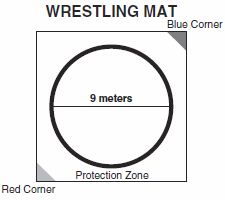Understand the concept of Pi, know common estimates of Pi (3.14; 22/7) and use these values to estimate and calculate the circumference and the area of circles.
Remarks
Using various circular objects, students determine that the ratio of circumference to diameter approximates the value of Pi.General Information
Subject Area: X-Mathematics (former standards - 2008)
Grade: 6
Body of Knowledge: Geometry
Idea: Level 2: Basic Application of Skills & Concepts
Supporting Idea: Geometry and Measurement - Geometry and Measurement
Date Adopted or Revised: 09/07
Content Complexity Rating:
Level 2: Basic Application of Skills & Concepts
-
More Information
Date of Last Rating: 06/07
Status: State Board Approved - Archived
Assessed: Yes
Test Item Specifications
-
Item Type(s):
This benchmark may be assessed using:
MC
item(s)
Also assesses MA.6.A.3.4 Solve problems given a formula.
- Clarification :
Students will use 22/7 or 3.14 as an approximation for to determine the approximate circumference and area of circles.Students will find the diameter or radius, given the circumference or area of a circle.
- Content Limits :
Items may include using vocabulary such as radius, diameter, and center.
Item graphics or options may include the use of visual representations or vocabulary associated with a circle, such as chord, arc, sector, and central angle. These terms will not be directly assessed. - Stimulus Attributes :
Items may be set in a real-world or mathematical context.
Graphics should be used in most of these items, as appropriate. - Response Attributes :
Multiple-choice responses should include only correct units (e.g., answers for area questions should all have square units).
Sample Test Items (1)
- Test Item #: Sample Item 1
- Question: In a regulation wrestling match, wrestlers compete within a circular zone 9 meters in diameter.

Which of the following is closest to the area of the circular zone?
- Difficulty: N/A
- Type: MC: Multiple Choice
Related Access Points
Alternate version of this benchmark for students with significant cognitive disabilities.
Related Resources
Vetted resources educators can use to teach the concepts and skills in this benchmark.
Lesson Plans
Video/Audio/Animation
Virtual Manipulative
Student Resources
Vetted resources students can use to learn the concepts and skills in this benchmark.
Virtual Manipulative
Circle Tool:
This applet allows students to investigate the relationships between the area and circumference of a circle and its radius and diameter. There are three sections to the site: Intro, Investigation, and Problems.
- In the Intro section, students can manipulate the size of a circle and see how the radius, diameter, and circumference are affected. Students can also play movie clip to visually see how these measurements are related.
- The Investigation section allows students to collect data points by dragging the circle radius to various lengths, and record in a table the data for radius, diameter, circumference and area. Clicking on the x/y button allows students to examine the relationship between any two measures. Clicking on the graph button will take students to a graph of the data. They can plot any of the four measures on the x-axis against any of the four measures on the y-axis.
- The Problems section contains questions for students to solve and record their answers in the correct unit.
(NCTM's Illuminations)
Type: Virtual Manipulative
Parent Resources
Vetted resources caregivers can use to help students learn the concepts and skills in this benchmark.
Video/Audio/Animation
Story of Pi:
This video dynamically shows how Pi works, and how it is used.
Type: Video/Audio/Animation







